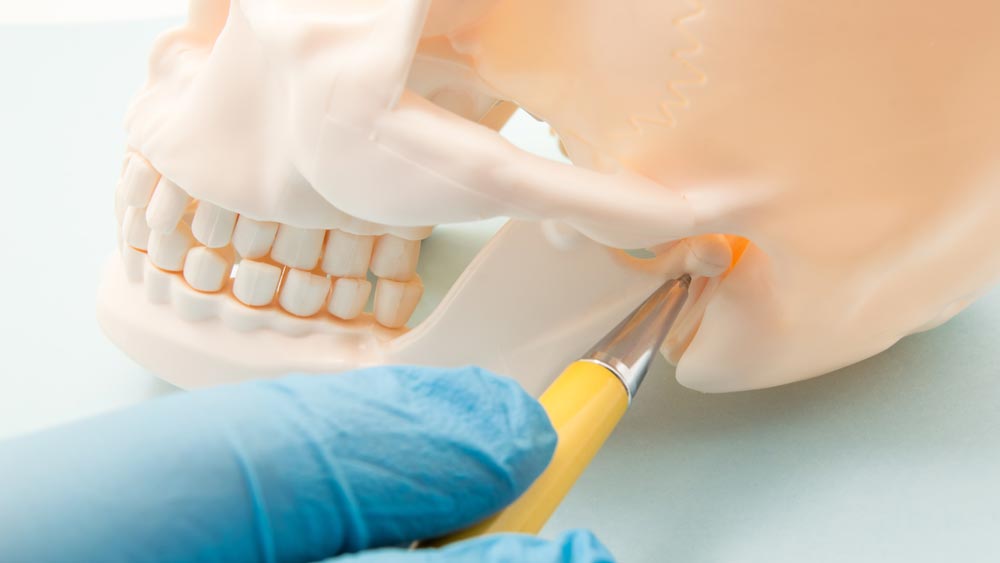Neuromuscular Dentistry
TMJ can be relieved though neuromuscular dentistry, which places the jaw into its optimal position. Neuromuscular dentistry can relieve:
- Headaches/Migraines
- Facial, neck and shoulder pain
- Sensitive, sore, worn and cracked teeth
- Limited jaw movement or locking jaw
- Clicking or popping in the jaw joints
If you suffer from any of these symptoms, neuromuscular dentistry may be the solution you need.
What is Neuromuscular Dentistry?
The way your upper and lower teeth come together into a bite is part of a system of teeth, muscles, and joints. If your teeth are not fitting together and you have a misaligned bite, the muscles and joints accommodate and try to make them fit together. This can lead to overworked muscles and painful conditions.
Neuromuscular dentistry considers the entire system that controls the position and function of your jaw. The neuromuscular dentist aims to establish a jaw position that creates a harmonious relationship of the teeth, muscles and jaw joints. The result is called the neuromuscular bite.
How is Neuromuscular Dentistry performed?
To provide you with the neuromuscular bite, Dr. Guest evaluates and studies the complex relationship between your teeth, jaw, and muscles. Then, Dr. Guest applies neuromuscular principles to rebuild your bite. This begins by relaxing the muscles around the jaw with a TENS device called a Myomonitor. The Myomonitor is an electrical muscle stimulator that delivers mild electrical stimulus to the muscles of the face, jaw, neck and shoulder. This exercises the muscles and causes them to relax.
Dr. Guest may perform computerized tests that provide detailed information about the status of your muscles and joints. This gives us a view of what your muscles and joints are doing.
Computerized Mandibular Scanning or Jaw Tracking allows us to measure and study the pattern of the jaw opening and closing through a full range of motion. Electromyography (EMG) tests provide information on the activity of key muscles that control the jaw during various functions and rest. This information is then used in the diagnosis to assist in determining the precise point where your jaw should be in relation to your upper teeth. Once this point is found, you will be given a plastic appliance called an “orthotic” to keep your bite in its new position. This may wear this as an interim step to a more permanent treatment.
Are you a candidate for Neuromuscular Dentistry?
There are several options for creating a beautiful and comfortable smile. If you are thinking about major dental procedures such as orthodontics, dentures, or if you have head and neck pain or other TMJ like symptoms, deciding a precise plan of action becomes vital. Neuromuscular dentistry can have a hugely positive impact on the outcome of treatment.
Contact us today to find out if neuromuscular dentistry is the right choice for you. We’ll be happy to answer your questions and provide you with further information on neuromuscular dentistry.
K-7 for TMJ Therapy
While neuromuscular dentistry can be a long and at times complicated process, it can erase several chronic symptoms. These can be migraines, headaches, loose or crowded teeth, clenching and grinding, and much more. If you suffer one of these symptoms contact us today and schedule your first neuromuscular dentistry exam.

